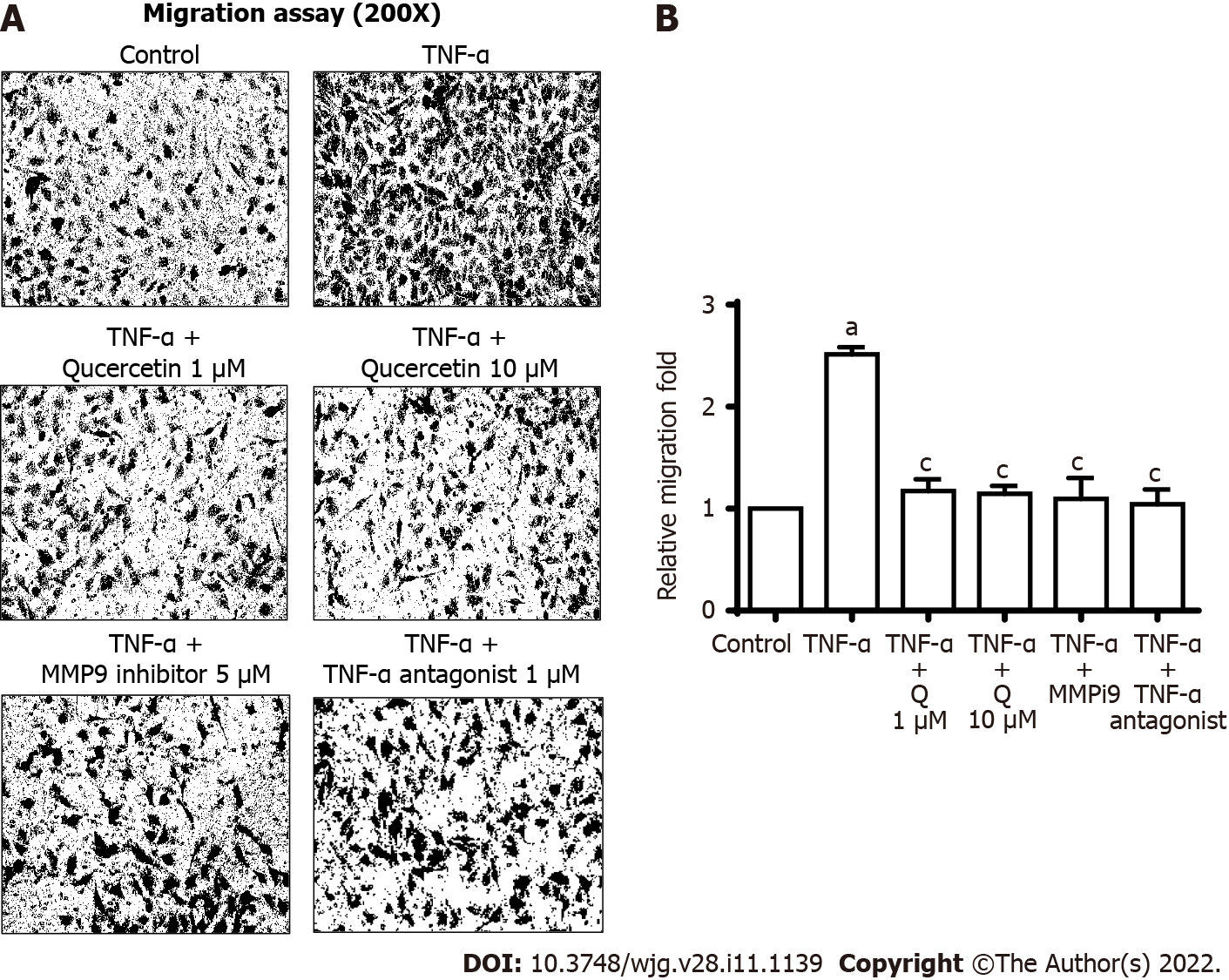Copyright
©The Author(s) 2022.
World J Gastroenterol. Mar 21, 2022; 28(11): 1139-1158
Published online Mar 21, 2022. doi: 10.3748/wjg.v28.i11.1139
Published online Mar 21, 2022. doi: 10.3748/wjg.v28.i11.1139
Figure 8 Quercetin exhibit antimetastatic activities in vitro.
A: Cells were plated in 24-well culture plates, grown to confluence, and starved with serum-free medium for 24 h. Cells were pretreated with a tumor necrosis factor-α (TNF-α) antagonist (1 mM), matrix metallopeptidase-9 inhibitor (5 mM), or quercetin (1 or 10 mM) for 1 h, and monolayer cells were incubated with TNF-α (30 ng/mL) for 24 h as described in the Materials and Methods section; B: One-way ANOVA was used for comparisons between the two groups (aP < 0.05, bP < 0.01 vs control cells). One-way ANOVA was used for comparisons among different treatments (cP < 0.05, dP < 0.01 vs TNF-α-stimulated cells). Data are expressed as the mean ± SEM of three independent experiments. GES-1: Normal human gastric mucosa epithelial cell line; MMP-9: Matrix metallopeptidase-9; MMP9i: MMP-9 inhibitor; TNF-α: Tumor necrosis factor-α.
- Citation: Hsieh HL, Yu MC, Cheng LC, Chu MY, Huang TH, Yeh TS, Tsai MM. Quercetin exerts anti-inflammatory effects via inhibiting tumor necrosis factor-α-induced matrix metalloproteinase-9 expression in normal human gastric epithelial cells. World J Gastroenterol 2022; 28(11): 1139-1158
- URL: https://www.wjgnet.com/1007-9327/full/v28/i11/1139.htm
- DOI: https://dx.doi.org/10.3748/wjg.v28.i11.1139









